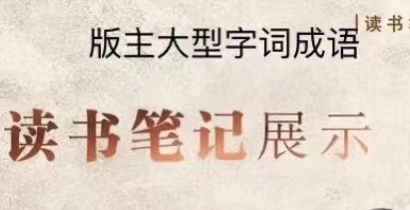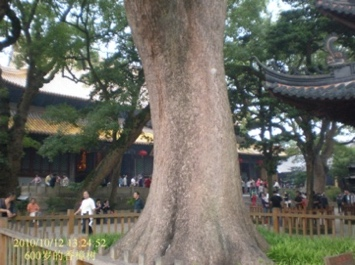strike /straik/ I. vt. & vi. (struck) 1.打,敲,击;擦(火柴等): strike sb. on the head 打某人的头 Strike while the iron is hot.[谚]趁热打铁。The ship struck against a rock. 船触礁了。[考句]I was about to strike a match when I remembered Tom’s warning.我正想要擦一个火柴时突然想起了汤姆的警告。 2. (钟)打点,鸣:The clock has just struck four. 钟刚过4点。 I didn’t hear the clock strike. 我没听到钟响。 3. 打动,给…以深刻印象:What struck us most was the great number of bicycles on the streets.给我们印象最深的是街上的自行车非常多。The lecture struck deeply into the minds of the children. 讲演深深触动孩子们的心灵。 4. (蛇,兽)咬,抓: He was struck by a snake. 他被蛇咬伤。 5. 罢工:The dustmen are going to strike.清洁工要罢工。 6.突然发现(口语):They struck oil. 他们发现了油田。 7.用于短语动词 strike off 停业整顿:A solicitor who insulted two officials from the Law Society was struck off for abusive behaviour.一个侮辱两个法学会官员的律师因行为不端而被停业整顿。strike out 开拓;因错误而画掉:As a company they’ve never been afraid to strike out in new directions.作为一个公司,他们从来不害怕开拓新的领域。The word had been struck out and another word written over it.这个单词被取消代之以另一个单词。strike up 开始(表演、演奏、关系等):When the applause had died down, a regimental band struck up the national anthem. 掌声结束后,乐队开始奏国歌。It can be difficult to strike up a conversation with a complete stranger.和一个陌生人开始交谈可能是蛮难的。‖II. n.[c]罢工:call a strike 下令罢工 In those countries strikes are common. 在那些国家,罢工很常见。go on strike 罢工:The salesmen went on strike for higher pay. 售货员为争取提高工资而举行罢工。 be on strike 在罢工:The railway workers are on strike. 铁路工人在进行罢工。
striker n.罢工者









